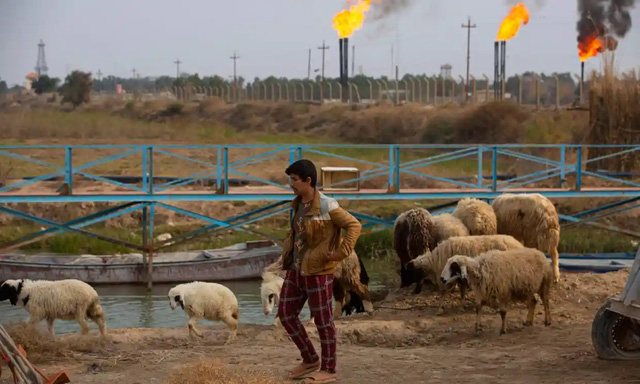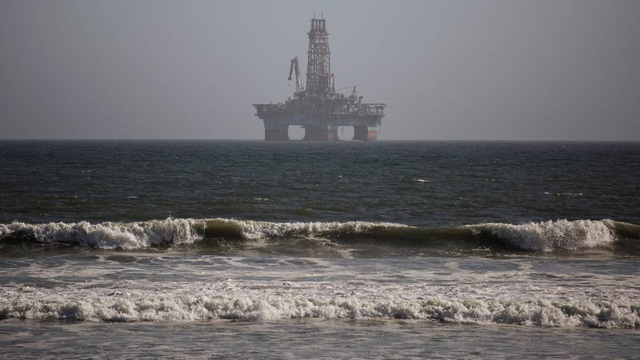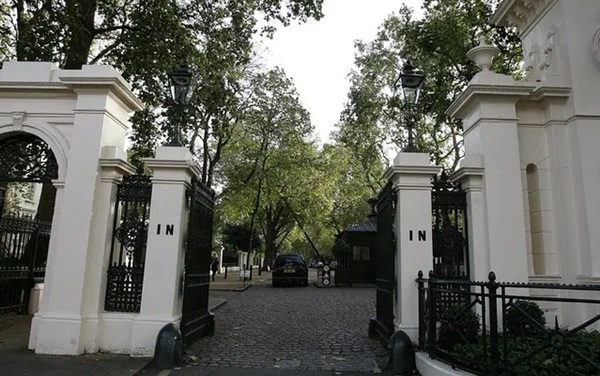Bright future for rich countries, extreme tragedy for poor countries
Wealthy nations will have to end all oil and gas production in the next 12 years, according to a study. Meanwhile, it takes developing countries 28 years to complete the transition away from fossil fuels.
The report, led by Professor Kevin Anderson from the Tyndall Center for Climate Change Research at the University of Manchester, shows that rich nations like the UK, US and Australia won’t stop producing oil and gas until 2034. This aims to give the world a 50% chance of averting devastating climate disruption. Least developed countries are also heavily dependent on fossil fuels which will be extended until 2050.

Iraq is one of the countries that must depend on fossil fuel production until 2050
Mr. Anderson said that while a rapid transition away from a “fossil fuel economy” was needed, it was important to do it fairly and equally. “There is huge variation in the ability of countries to end oil and gas production, while keeping their economies vibrant and delivering an adequate transition to their economies,” he said. their citizens”.
The report looks at each country’s wealth and how dependent its economy is on fossil fuel production. It was found that many poorer countries would be economically and politically paralyzed by a sudden “away” from oil and gas, while richer nations could afford to stop producing natural gas. fossil materials can still be relatively prosperous.
For example, they found that oil and gas revenue contributed 8% to US GDP but without it, the country’s GDP per capita would still be around $60,000, the second-highest in the world. Global. Meanwhile, countries like South Sudan, the Republic of the Congo and Gabon, despite being small oil and gas producers, have little revenue from other economic sectors and would be devastated if they moved change too quickly.
Christiana Figueres, the former UN climate director who oversaw the 2015 Paris summit, concurs with the study’s findings. “This new study is a timely reminder that all countries must phase out oil and gas production quickly, with rich nations at the forefront, while ensuring a smooth process.” appropriate transition for workers and the countries that rely on it”.

According to a study by the International Institute for Sustainable Development, quantifying future oil and gas production in line with the Paris climate target of 1.5 degrees Celsius. This has huge implications for 88. The country is responsible for 99.97% of the global supply of oil and gas. Research has found that reducing oil and gas production can increase the chance of limiting global warming to 1.5 degrees Celsius by 50%.
Of these, 19 “highest capacity” countries, with GDP per capita excluding oil of more than $50,000, must stop production by 2034, cutting 74% by 2030. This group produces 35 % of global oil and gas production, including the US, UK, Norway, Canada, Australia and the United Arab Emirates.
The 14 “highly productive” countries, with GDP per capita excluding oil of nearly $28,000, have not resumed production since 2039, with a cut of 43 percent by 2030. They produce. 30% of global oil and gas, including Saudi Arabia, Kuwait and Kazakhstan. In addition, eleven “middle capacity” countries, with per capita non-oil GDP per capita of $17,000, must cease production by 2043, cutting production by 28% by 2030. produces 11% of global oil and gas, including China, Brazil and Mexico.
Nineteen “low-capacity” countries with a non-oil GDP per capita of $10,000, must end production by 2045, with an 18% cut by 2030. These countries produce 13 % of global oil and gas production, including Indonesia, Iran and Egypt. Finally, the 25 “lowest capacity” countries, with a GDP per capita excluding oil of $3,600, will have to cease production by 2050 with a 14% cut in production by 2030. produces 11% of global oil and gas, including Iraq, Libya, Angola and South Sudan.
Research shows that less developed countries will need financial support to make the transition if they are to avoid major economic and political upheavals. Lidy Nacpil, a climate justice campaigner, said: “Rapid and sensible oil and gas removal is still possible within the timeframe suggested in this report, as long as countries are up to it. wealth provides substantial financial, technical and political support, and cancels debts.”
Moreover, the less developed countries will always wait first for the actions of the rich countries. The rich countries have already emitted most of the world’s CO2, and it’s still in the air, causing global warming. Emissions per capita in the EU are still much higher than in poor countries, although emissions here have declined in recent decades.
at Blogtuan.info – Source: cafebiz.vn – Read the original article here



